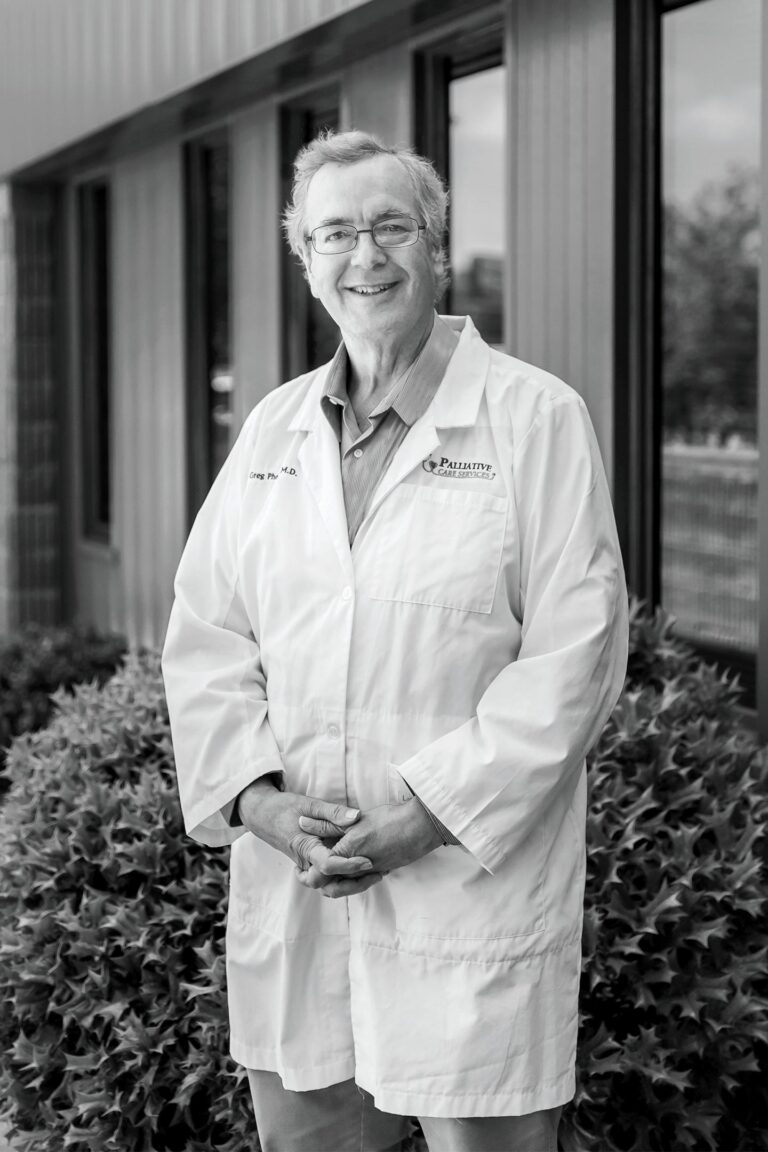Alleo Health System, Hospice of Chattanooga, & Palliative Care Services
Being Called to Care
Dr. Greg Phelps has been a physician for over 40 years, but he didn’t begin practicing hospice and palliative medicine until 2010. “When my mother died in hospice, I went back to school to learn that,” he shares. “I came to hospice seeing it as a ministry, as what I was called to do.” As medical director for the Alleo Health System, Dr. Phelps runs a multidisciplinary team of physicians, nurses, social workers, and chaplains who provide both hospice and palliative care services to hospitals. “My team is invited in when patients are often at the worst point with a serious, perhaps life-ending illness – their lives have been thrown upside down. We can step in and help bring some order, understanding, and comfort through the end of life journey.”
Of all the things I've done, I find the most reward in this care."
My Credentials
Medical Degree:
The Medical University of South Carolina – Charleston, SC
Certifications:
Family Medicine and Hospice and Palliative Medicine, American Board of Family Medicine
Occupational Medicine, American Board of Preventative Medicine
Recognitions:
Fellow of the American Academy of Family Medicine
Fellow of the American College of Preventative Medicine
My Specialties
Hospice and Palliative Medicine
Family Medicine
Preventative Medicine

1. What sets your practice apart?
We do not focus on just the illness or the patient, but the suffering of both patient and family and communicating regarding their illness. We say Palliative Care Services is about three C’s – Comfort, Communication, and Coordination.
2. Why have you chosen this field of specialty?
I think people in my field of ‘end of life’ care are called, not employed. Almost all of us have a story about seeing real compassion manifested in care delivered in hospice that brought each of us to this discipline.
3. What would you consider to be your main strengths?
A good sense of humor, extroverted personality, compassion, a humbleness to admit when I’m wrong, and a passionate desire to keep learning and growing.
4. What accolades mean the most to you?
When I can get a suffering patient comfortable and smiling, their pain relieved, and for them to be able to do the existential work of looking back and celebrating their life with their family.
5. What is your philosophy when it comes to the care of your patients?
Treat others as you would want to be treated. Be kind. Listen. It is not about what I want, it is about helping the patient determine what matters most to them, particularly if time is short.

